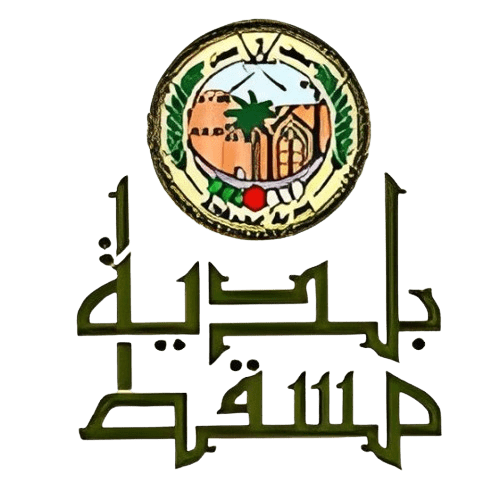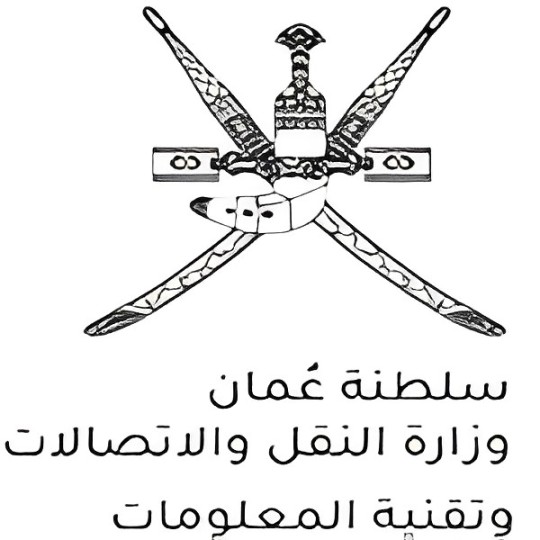+968 9596 3381
Phone Number
[email protected]
Email Address
Mon - Thu: 8:00 - 5:00
Online store always open
Phone Number
Email Address
Online store always open
WhatsApp Us Today
Drop Us an Email Today
Google Map Location
Saturday to Thursday

Oman has firmly established itself as a beacon for foreign investment in the Middle East, thanks to a series of progressive reforms aimed at liberalizing its economy and attracting global capital. A cornerstone of these reforms is the significant overhaul of foreign ownership rules, marking a new era of opportunity for international businesses seeking to establish a presence in the Sultanate.
Historically, foreign investors in Oman often faced restrictions on ownership, typically requiring an Omani partner to hold a majority stake. However, with the enactment of the Foreign Capital Investment Law (FCIL) – Royal Decree 50/2019 – and the revised Commercial Companies Law (CCL) – Royal Decree 18/2019, Oman has opened its doors wide, allowing 100% foreign ownership in most sectors. This pivotal shift streamlines the investment process, reduces complexity, and enhances investor confidence.
For foreign investors, understanding the available legal structures and the nuances of the new ownership regulations is paramount for a successful and compliant entry into the Omani market. This comprehensive guide will detail the current foreign ownership rules, explore the key legal structures, and outline essential considerations for establishing your venture in Oman. Setup in Oman stands as your expert guide, providing end-to-end support for your company formation and ensuring a seamless transition into the Omani business landscape.
Oman has significantly improved its regulatory environment to attract foreign direct investment (FDI). Key highlights include:
100% foreign ownership allowed in many non-restricted sectors
Simplified company formation procedures
Access to free zones with additional incentives
No personal income tax or capital gains tax
The Ministry of Commerce, Industry, and Investment Promotion (MoCIIP) oversees the implementation of the FCIL and company formation regulations.
The Foreign Capital Investment Law (Royal Decree No. 50/2019) introduced a more liberalized investment framework by:
Removing the general requirement for Omani partnership in many sectors
Allowing full ownership for foreign investors in eligible industries
Introducing fast-track licensing for strategic projects
Establishing investor protection provisions and dispute resolution mechanisms
However, certain sectors remain restricted or require Omani partnership, which we’ll detail below.
As of 2025, foreign investors can own companies fully in many sectors, including:
Technology & IT Services
Tourism & Hospitality
Manufacturing & Industrial Services
Logistics & Transportation
Education & Training Services
Healthcare (in select sub-categories)
Retail & Wholesale Trading (with conditions)
Investors should always verify the latest “Negative List” issued by the MoCIIP, which outlines sectors where foreign ownership is restricted.
Some industries still require Omani national shareholding, including:
Oil & gas exploration
Defense and national security
Fisheries for export
Certain types of recruitment and labor services
Media and publishing
Real estate brokerage
In such sectors, a Joint Venture or Limited Liability Company (LLC) with a minimum Omani ownership (often 30%-51%) is required.
Foreign entrepreneurs can choose from several legal entity types depending on the business model, size, and ownership requirements:
Most common structure
Can now be 100% foreign-owned (if allowed by sector)
Requires minimum 2 shareholders
Minimum capital: No longer legally required, but practical limits apply
Must appoint at least 1 local manager
Allowed only for GCC nationals or Omani citizens
Not applicable to foreign investors
Used in restricted sectors
Combines foreign capital with local Omani partner
Shared liability as per agreement
No separate legal identity; extension of parent company
Must have a government contract or special approval
Can operate for the contract duration only
Cannot engage in revenue-generating activities
Used for market research and liaison
Low-cost entry point
Free zones in Oman offer even more liberal regulations, including:
100% foreign ownership across all business activities
0% income tax for up to 30 years
Full repatriation of profits and capital
No customs duties on imports and exports within the zone
Major free zones include:
Duqm Special Economic Zone (SEZAD)
Salalah Free Zone
Sohar Free Zone
Knowledge Oasis Muscat (KOM) for tech/startups
Depending on the structure and activity, foreign investors must obtain the following:
Commercial Registration (CR) from MoCIIP
Municipality license (local government)
Sector-specific licenses (e.g., from Ministry of Health, Ministry of Tourism, etc.)
Chamber of Commerce registration
Work visa quotas (Labor Clearance) from Ministry of Labour for hiring foreign staff
Foreign-owned entities are subject to:
Corporate Income Tax at a flat rate of 15%
Value Added Tax (VAT) at 5% on taxable supplies
Withholding tax (WHT) at 10% on payments to non-residents (interest, royalties, services, etc.)
There is no personal income tax in Oman as of 2025.
Oman also has double taxation agreements (DTAs) with over 30 countries, reducing withholding tax rates and preventing tax duplication.
Foreign businesses may face:
Language barriers in government communications
Understanding legal nuances across ministries
Navigating local labor laws and Omanization requirements
Regulatory delays if documentation is incomplete
Working with a local business consultant can help streamline the process and avoid costly mistakes.
Obtain Name Reservation: Choose and reserve a business name via MoCIIP
Submit Commercial Registration (CR) Application
Obtain Required Licenses from sectoral authorities
Secure Office Space (mandatory for CR)
Open a Local Bank Account and deposit capital (if needed)
Register for Tax (VAT, CIT) with Oman Tax Authority
Apply for Labor Clearance and Residency Visas
For decades, the standard practice for foreign investors in Oman involved forming a joint venture with an Omani national or entity, where the Omani partner typically held at least 30% or, more commonly, 70% of the company’s shares. While this model fostered local partnerships, it often presented challenges regarding control and strategic decision-making for foreign investors.
The new Foreign Capital Investment Law (FCIL) – Royal Decree 50/2019, which came into effect in 2020, replaced the older foreign investment law and introduced a groundbreaking change: it generally permits 100% foreign ownership of Omani companies. This was further reinforced by the modernised Commercial Companies Law (CCL) – Royal Decree 18/2019, which updated corporate governance and company formation procedures.
This liberalization signifies Oman’s strong commitment to:
Attracting a broader range of foreign investment.
Enhancing its competitiveness on the global stage.
Diversifying its economy away from reliance on hydrocarbons.
Simplifying the investment process for international players.
Under the new laws, foreign investors have several legal structures available, each suited to different business needs and scales of operation:
Ownership: This is now the most popular and flexible option, allowing 100% foreign ownership. Previously, a minimum 30% Omani shareholding was required.
Liability: Shareholders’ liability is limited to their capital contribution.
Minimum Capital: For an LLC with 100% foreign ownership, the minimum paid-up capital requirement is OMR 20,000.
Note: For LLCs with at least 30% Omani shareholding, the minimum capital can be as low as OMR 2,000 (for general trading) or OMR 5,000 for many other activities. However, for fully foreign-owned entities, the OMR 20,000 applies.
Shareholders: Can be formed with a minimum of two shareholders (individuals or corporate entities) and a maximum of 40. A single-shareholder LLC is also permitted under specific conditions.
Operations: Can engage in a wide range of commercial, industrial, and service activities, unless specifically restricted by the “Negative List.”
Governance: Requires a manager or board of managers. Financial statements must be prepared in accordance with IFRS and generally audited annually.
Ownership: Can also be 100% foreign-owned under the new laws.
Liability: Shareholders’ liability is limited to their capital contribution.
Minimum Capital: Requires a higher minimum paid-up capital, typically OMR 500,000.
Shareholders: Must have a minimum of three founders. Shares are not publicly traded but can be transferred privately.
Operations: Suitable for larger enterprises, often with more complex governance structures and greater capital needs.
Governance: Governed by a Board of Directors and subject to stricter regulatory oversight by the Capital Market Authority (CMA). Audited financial statements are mandatory.
Ownership: 100% foreign-owned, as it is an extension of the parent foreign company.
Purpose: Typically allowed for foreign companies that have secured a government contract in Oman or for specific activities that require a direct presence (e.g., engineering, consulting for a specific project).
Liability: The liability extends to the parent company.
Operations: Limited to the scope of activities permitted to the parent company and often tied to a specific project or contract.
Registration: Requires registration with the MoCIIP and typically obtaining a specific license from the relevant ministry.
Ownership: 100% foreign-owned.
Purpose: Primarily for market research, promoting the parent company’s products or services, and acting as a liaison office. It is strictly prohibited from engaging in any commercial or income-generating activities in Oman.
Staffing: Usually limited to a few foreign staff.
Registration: Registered with the MoCIIP.
Ownership: Fully owned by one individual.
Restrictions: Generally, sole proprietorships for commercial activities are restricted to Omani nationals. There are very limited exceptions for foreign professionals in specific fields (e.g., certain consulting, IT) if they obtain specific professional licenses, but these are rare for broader commercial operations. For general business activities, foreign investors typically opt for an LLC.
Ownership: 100% foreign ownership is standard in Oman’s various Free Zones.
Incentives: Free Zones offer attractive incentives, including:
Tax holidays (e.g., 10-year income tax exemption, renewable).
Exemption from customs duties.
No currency restrictions.
Repatriation of capital and profits.
Simplified regulations and one-stop-shop services.
Regulation: Governed by their specific Free Zone authorities (e.g., Duqm Special Economic Zone Authority – SEZAD, Sohar Port and Freezone, Salalah Free Zone).
Activities: Wide range of permitted activities, often focused on logistics, manufacturing, trading, and services.
The general principle under the FCIL is that all economic activities are now open to 100% foreign ownership, unless specifically excluded. This “exclusion” is defined by the Negative List.
The Negative List: Issued by Ministerial Decision No. 102/2020 (and subsequently amended by Ministerial Decision No. 197/2020), the Negative List identifies activities where 100% foreign ownership is either prohibited or requires a specific minimum Omani shareholding. Examples of activities typically on this list include:
Certain cultural services.
Some retail activities (specific categories).
Services requiring a specific Omani nationality for licensing.
Activities related to specific Omani heritage or traditional industries.
Some specific transportation activities.
The list is regularly reviewed and aims to be minimal.
Always verify the latest version of the Negative List with a local expert based on your specific commercial activity.
No Omani Sponsor Required (Generally): For companies fully foreign-owned, the requirement for a local Omani sponsor (agent or representative) for company formation purposes is largely removed, further simplifying the process.
Before establishing your entity in Oman, consider the following:
Commercial Activity Verification: The first and most crucial step is to verify whether your intended commercial activity falls on the Negative List. If it does, you may need to consider a joint venture with an Omani partner or explore options in a Free Zone.
Sector-Specific Licensing: Beyond general commercial registration with the MoCIIP, most activities require specific licenses from relevant ministries or regulatory bodies (e.g., Ministry of Health for healthcare, Ministry of Education for schooling, Central Bank of Oman for financial services).
Omanisation Requirements: Regardless of foreign ownership, all entities in Oman are subject to Omanisation laws, which mandate a certain percentage of Omani nationals in the workforce. These percentages vary by sector and company size.
Minimum Capital Requirements: Ensure you meet the stipulated minimum capital for your chosen legal structure and ownership percentage (e.g., OMR 20,000 for a 100% foreign-owned LLC).
Business Plan: A robust business plan outlining your objectives, financial projections, and operational strategy is highly recommended and may be required for certain licenses or investment approvals.
Establishing a foreign-owned entity in Oman involves navigating legal frameworks, administrative procedures, and cultural nuances. Setup in Oman offers comprehensive services designed to streamline this process, ensuring your venture is set up compliantly and efficiently:
Company Formation: Choosing the right legal structure and ensuring full compliance with foreign ownership rules is paramount. Our Company Formation services provide expert guidance on the new FCIL and CCL, helping you select the ideal entity (e.g., 100% foreign-owned LLC, SAOC, Free Zone entity) based on your specific business activity, capital, and strategic objectives. We manage the entire registration process with MoCIIP and other relevant authorities.
Investor Visa: For foreign business owners and senior management, obtaining legal residency is essential. Our Investor Visa Services facilitate the visa application process, ensuring that key foreign investors can reside in Oman and oversee their fully-owned businesses smoothly.
Corporate Bank Account: Once your entity is established, a corporate bank account is crucial for capital injection and daily operations. Our assistance in opening your corporate bank account in Oman ensures seamless financial transactions, essential for meeting capital requirements and managing your business finances compliantly.
Work Visa: For any foreign employees your fully-owned Omani entity plans to hire, securing proper work permits is vital. Our Work Visa services manage the entire application process, ensuring your foreign workforce can legally contribute to your operations.
PRO Services: Beyond initial setup, ongoing compliance, renewals, and government liaison are critical. Our comprehensive PRO Services provide continuous administrative support, handling submissions to MoCIIP, managing license renewals, and ensuring your foreign-owned entity adheres to all Omani regulations, including Omanisation requirements.
Negative List Interpretation: The Negative List requires careful interpretation. Always confirm your specific activity’s eligibility for 100% foreign ownership.
Sector-Specific Regulations: Even if 100% foreign ownership is allowed, obtaining specific industry licenses can be complex and time-consuming.
Omanisation Compliance: Adhering to the progressive Omanisation targets is a continuous effort that requires strategic workforce planning.
Choosing the Optimal Structure: The best legal structure depends heavily on your business activity, long-term goals, and capital availability.
Local Expert Advice: Engaging with local legal and business setup experts is crucial to navigate the evolving regulations and ensure a smooth setup process.




Can a foreigner own 100% of a company in Oman?
Yes, in most non-restricted sectors under the Foreign Capital Investment Law, foreigners can own companies fully.
Do I need an Omani sponsor for my business in Oman?
No, unless you operate in a restricted sector. For eligible activities, no local sponsor or partner is needed.
What is the best structure for a foreign SME?
A Limited Liability Company (LLC) is the most flexible and widely used structure for SMEs.
Are free zones better for foreign investors?
Free zones offer 100% ownership, tax benefits, and easy repatriation, making them ideal for many foreign investors.
What is the minimum capital required for foreign companies?
While the legal requirement is waived, practical capital thresholds vary depending on activity and structure.
Oman’s commitment to economic diversification and foreign investment has resulted in liberal ownership rules, robust legal frameworks, and competitive tax advantages. Whether you’re a multinational corporation or a small startup, choosing the right legal structure and staying compliant with sectoral laws is key to long-term success.
Need help setting up your foreign-owned business in Oman? Our expert consultants can guide you through the licensing, legal structure selection, and compliance process from start to finish.





Need help setting up your foreign-owned business in Oman? Our expert consultants can guide you through the licensing, legal structure selection, and compliance process from start to finish.
Fill out our quick and easy contact form below. Briefly tell us about your vision and goals, and we’ll be in touch shortly to discuss a personalized plan for your success.
Al-Khuwair, Muscat, Sultanate of Oman